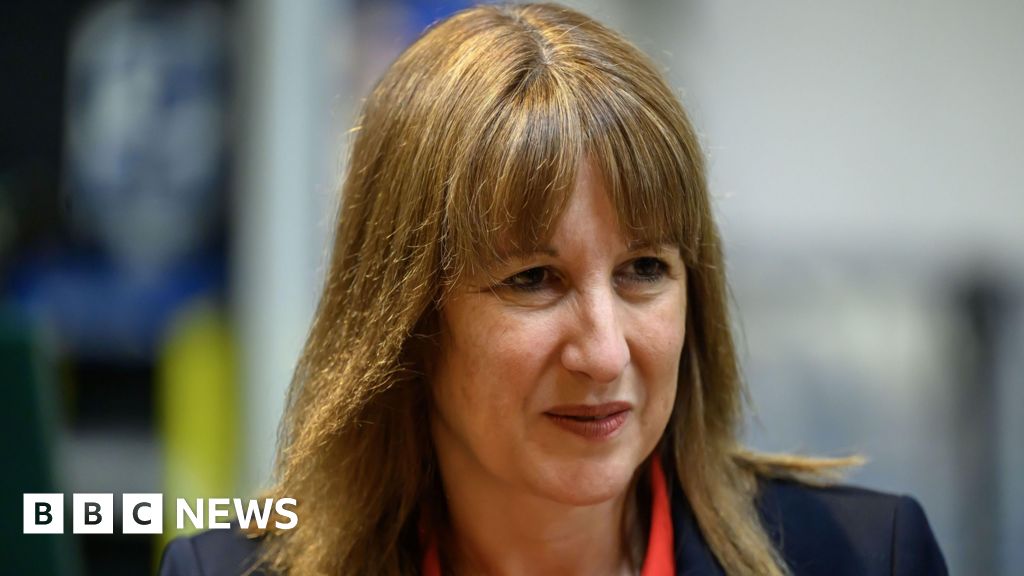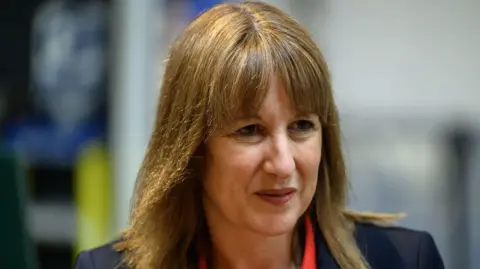
Rachel Reeves refuses to rule out income tax rises at Budget
Sam FrancisPolitical reporter
 PA Media
PA MediaChancellor Rachel Reeves has refused to rule out an income tax rise in next month’s Budget, amid speculation she is considering breaking a key Labour election pledge.
Asked about reports, first published in The Guardian newspaper, that the Treasury is in active discussions over raising the rate, Reeves said she would “continue to support working people by keeping their taxes as low as possible”.
Reeves’ refusal to rule out a rise does not mean one is inevitable as Chancellors rarely confirm or deny specific tax measures ahead of a Budget.
But her careful language contrasts with comments in September that “manifesto commitments stand” on not raising income tax, National Insurance or VAT.
Labour’s 2024 general election manifesto contained a pledge not to raise “the basic, higher, or additional rates of income tax”.
The party also promised not to increase National Insurance – prompting a row last autumn when it announced a hike in the contributions paid by employers.
Speaking to journalists in Leeds on Friday, Reeves said: “Although I can’t talk about individual measures at this stage, I understand that the cost of living is still people’s number one concern.”
She went on to say that her aim was to “ensure that we continue to support working people by keeping their taxes as low as possible” but that she was still “going through the process” of writing her Budget.
She also said that although the inflation figures this week “came in better than expected” there was “obviously much more to do.”
The chancellor has signalled she is likely to focus on wealthy individuals at the Budget, saying “those with the broadest shoulders should pay their fair share”.
This week, reports suggested officials are exploring a mix of measures, including higher taxes on partnerships used by lawyers and accountants.
However, economists say such steps will not raise enough to close the hole in the government’s finances, leaving Reeves under pressure to consider more politically sensitive options.
Influential think-tank the Institute for Fiscal Studies (IFS) says Reeves will “almost certainly” have to raise taxes to make up a £22bn shortfall in the government’s finances.
The gap has been driven by the Office for Budget Responsibility’s (OBR) decision to downgrade productivity forecasts, wiping out much of the £10bn “headroom” Reeves set aside at the spring statement.
Government borrowing – the difference between public spending and tax income – in September rose to £20.2bn, the highest for that month in five years, according to the Office for National Statistics.
The effective interest rates on UK government debt has fallen sharply, but Reeves has been left with very little room to meet her self-imposed fiscal rules without increasing taxes.
These rules mean her plans must be projected to get government debt falling as a share of national income by 2029-30, and day-to-day government costs must be paid for by tax income rather than borrowing.
If Reeves increases income tax it will be the first rise in the rate since 2010, when Labour introduced a 50% additional rate on incomes over £150,000 which was reduced to 45% by the coalition government.
Currently, Income tax is charged on earnings above the personal allowance of £12,570, which is tax-free.
The basic rate of 20% applies to income between £12,571 and £50,27, while earnings from £50,271 to £125,140 are taxed at the higher rate of 40%. Income above £125,140 is subject to the additional rate of 45%.
These thresholds apply to most taxpayers in England, Wales and Northern Ireland, while Scotland has a separate system.
The Guardian reported that Treasury officials are in “active discussions” about adding 1p to the basic rate of income tax, which could raise more than £8bn as well – as looking at increasing higher rates for top earners.
The basic rate of income tax has not been raised since the 1970s.

First Appeared on
Source link







